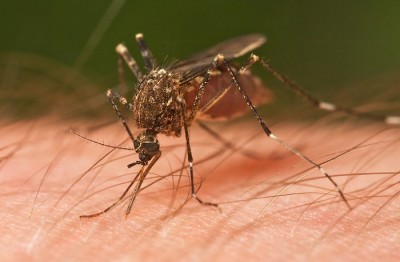|
Listen To The Article
|
 The world could be on the verge of a catastrophic malaria outbreak because of a new drug-resistant strain of the deadly disease that is spreading in parts of Asia.
The world could be on the verge of a catastrophic malaria outbreak because of a new drug-resistant strain of the deadly disease that is spreading in parts of Asia.
Almost 40 percent of the malaria in Burma, or Myanmar, has become resistant to the powerful drug artemisinin. Doctors are concerned because the drug-resistant malaria could soon spread to India, where it could then jump to other parts of the world.
It is spread via mosquito bites.
“The pace at which artemisinin resistance is spreading or emerging is alarming,” Phillippe Guerin, the director of the Worldwide Antimalarial Resistance Network told, Reuters.
A new report by the Mahidol-Oxford Tropical Medicine Research Unit in Bangkok says “millions of lives will be at risk” if the disease continues spreading. The study was published in the Lancet Infectious Diseases journal.
“[Burma] is considered the front line in the battle against artemisinin resistance as it forms a gateway for resistance to spread to the rest of the world,” said Charles Woodrow of the Mahidol-Oxford tropical medicine research unit.
The Hidden Secrets Of Making Herbal Medicines…Right At Your Fingertips!
Woodrow’s team collected 940 malaria samples at 55 treatment centers across Burma and its borders and discovered that 40 percent were artemisinin-resistant. They know there are drug-mosquitoes 15 miles from the India border.
The World Health Organization (WHO) says 584,000 people died from malaria in 2013 and around 198 million caught the disease. Most of the deaths were among African children. Symptoms include fever, shaking chills, headaches, muscle aches, tiredness, nausea, vomiting and diarrhea.
It’s not the first time the disease has grown resistant to a drug. During the 1950s, 60s and 70s, millions died when a strain of malaria grew resistant to chloroquine, and when it was replaced by the drug sulphadoxine-pyrimethamine (SP), another strain grew resistant. That drug was replaced by artemisinin.
Malaria is widespread in Cambodia, another Asian country.
“We are really down to the last possibilities in terms of how we treat malaria,” Woodrow told NPR. “We are considering combining three drugs, extending courses from three days up to five days. So I think midterm, this is a major problem.”
How to Prevent the Spread of Malaria
There are a number of steps that you can take to prevent catching malaria during an outbreak, according to the CDC. These steps include:
- If possible, avoid traveling to places where malaria outbreaks are occurring.
- Cover as much of your skin as possible. This means wearing pants, long-sleeved shirts, hats, socks and boots.
- Use mosquito repellant to reduce exposure.
- Stay indoors as much as possible.
- Use bed nets to protect yourself from mosquitoes.
Most cases of malaria occur in Africa, but the disease is not unknown in the United States. There were 63 outbreaks of mosquito-borne malaria in the United States between 1957 and 2011, according to the Centers for Disease Control and Prevention (CDC). There were nearly 2,000 cases of malaria in the US during 2011. Despite those numbers, the CDC considers malaria eradicated in the United States.
Do you believe a worldwide outbreak of malaria is possible? Share your thoughts in the section below:
 Off The Grid News Better Ideas For Off The Grid Living
Off The Grid News Better Ideas For Off The Grid Living



